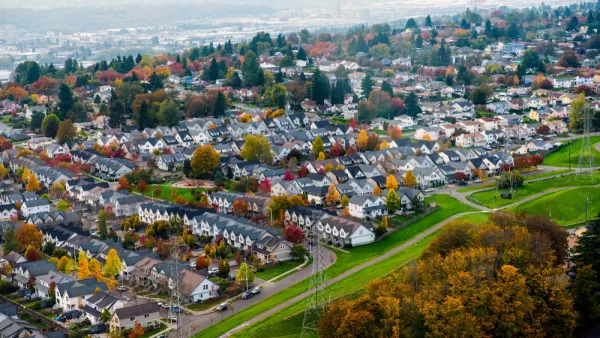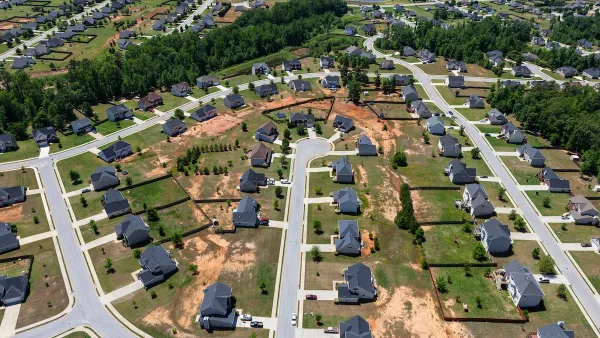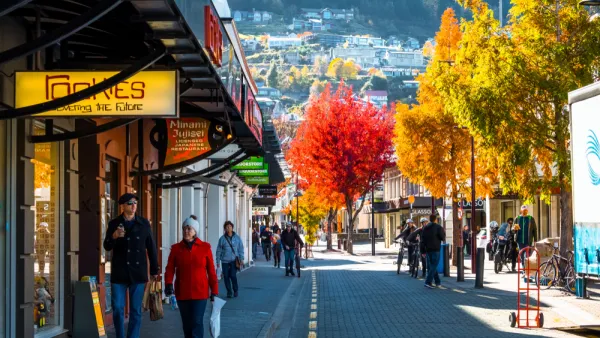New state legislation encourages cities to plan around ‘smart growth’ principles to preserve farmland and open space, and use infill development to build more housing.

Writing in Maine Public, Zara Norman describes how Maine towns are shifting to ‘smart growth’ principles to preserve open space and build livable, affordable cities.
By 2040, more than 50,000 acres of Maine farmland may be lost to urban and low-density conversion, according to the American Farmland Trust. That will put pressure on regional food systems, hurt farmers and worsen the effects of climate change, Julia Freedgood, a senior fellow with the farmland trust, said.
Norman explains that ‘smart growth’ seeks to balance protecting agricultural and open land with meeting the need for affordable housing, even in rural communities that are seeing rapidly rising housing costs around the country.
A new state law will guide development along these principles. “The bill, backed by GrowSmart Maine, defines more clearly what a ‘rural’ or ‘downtown’ area is, makes data collection easier for towns and stresses the importance of community engagement in creating comprehensive plans.”
FULL STORY: Maine towns are trying to undo planning decisions of the past

National Parks Layoffs Will Cause Communities to Lose Billions
Thousands of essential park workers were laid off this week, just before the busy spring break season.

Retro-silient?: America’s First “Eco-burb,” The Woodlands Turns 50
A master-planned community north of Houston offers lessons on green infrastructure and resilient design, but falls short of its founder’s lofty affordability and walkability goals.

Delivering for America Plan Will Downgrade Mail Service in at Least 49.5 Percent of Zip Codes
Republican and Democrat lawmakers criticize the plan for its disproportionate negative impact on rural communities.

Test News Post 1
This is a summary

Test News Headline 46
Test for the image on the front page.

Balancing Bombs and Butterflies: How the National Guard Protects a Rare Species
The National Guard at Fort Indiantown Gap uses GIS technology and land management strategies to balance military training with conservation efforts, ensuring the survival of the rare eastern regal fritillary butterfly.
Urban Design for Planners 1: Software Tools
This six-course series explores essential urban design concepts using open source software and equips planners with the tools they need to participate fully in the urban design process.
Planning for Universal Design
Learn the tools for implementing Universal Design in planning regulations.
EMC Planning Group, Inc.
Planetizen
Planetizen
Mpact (formerly Rail~Volution)
Great Falls Development Authority, Inc.
HUDs Office of Policy Development and Research
NYU Wagner Graduate School of Public Service





























